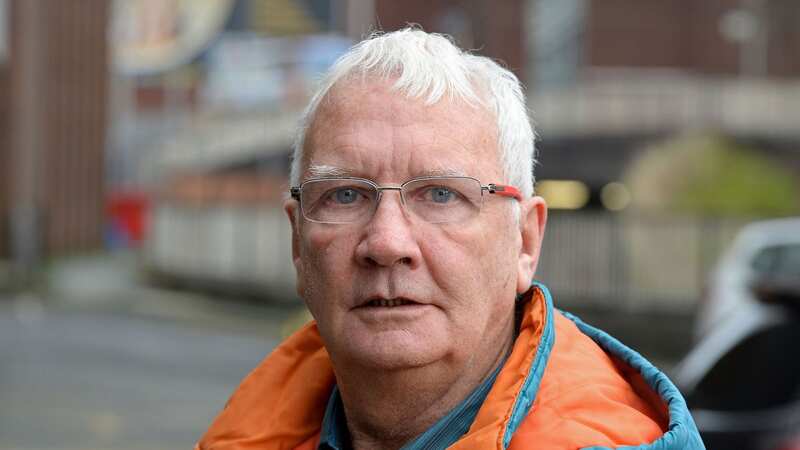

A pensioner who was mailed two confidential documents about a criminal investigation by bungling police was charged and hauled before a judge.
Jack Beecham, 72, had requested documents regarding an upcoming civil court case from police - but says he was instead mistakenly sent two pages about a criminal investigation. Mr Beecham was charged despite the force's error and appeared in court to face allegations of breaching data protection laws.
He said he attempted to phone the police solicitor's office about the papers, and also attempted to contact the subject of the criminal investigation and the police sergeant directly. When he said he received no response, though, he forwarded the information to a number of other people, including former police officers and journalists.
 Mr Beecham walked free from Liverpool Crown Court on Monday after the case was dropped (Liverpool Echo)
Mr Beecham walked free from Liverpool Crown Court on Monday after the case was dropped (Liverpool Echo)Mr Beecham, of Birkenhead, Merseyside, said: "That night, a big yellow van with 10 police officers came to my house to pick up four pieces of paper, which I gave them. They said I must also delete it from my devices, which I did. But then I said 'what do I do about the hundred-odd other people I sent them to?'"
The pensioner walked free from Liverpool Crown Court on Monday, after the Information Commissioner’s Office (ICO) decided it was not in the public interest to pursue a case against him. He was found not guilty of twice breaching section 170 of the Data Protection Act 2018, which makes it illegal to "knowingly or recklessly obtain, disclose or procure personal data without the consent of the data controller", reports Liverpool Echo.
 Tragedy as 13-month-old boy dies after the stolen car he was in crashed
Tragedy as 13-month-old boy dies after the stolen car he was in crashed
ICO prosecutor Anam Khan said: "In light of the knowledge that this is likely to be a lengthy trial, the prosecution takes on the view that it would be a disproportionate use of resources to continue with the case." Mr Beecham told The ECHO that he at first thought the papers were "a hoax" when he received them on June 25, and that he shared them with others in an attempt to verify their contents.
He said: "I wondered how I could find out if they were real. I copied the documents and sent them by email to a retired judge in North Wales, eight retired police officers, a journalist, and many of my friends. On June 28, the data protection officer contacted me and said I had these documents and had been sent them in error. I said that means they are real then? He said yes they are, and we want them back."
He said police "didn't seem bothered at the time" when they picked up the papers. But in late 2021 he was charged with obtaining and disclosing personal data, leading to a lengthy court process spanning nearly two years. No action was taken against Merseyside Police, however. An ICO Spokesperson said: “After Merseyside Police made us aware of this incident, we carefully assessed the information provided and the steps taken in response to the incident. We concluded that this was the result of human error and that no further action was necessary.
"We assess reported incidents on a case-by-case basis and any action is based on the specific facts and circumstances. The ICO also provides guidance to organisations on how to handle data securely and minimise risks.” Mr Beecham said: "It's been a highly stressful time for me. I have been up until 5.45am typing up evidence that I didn't even need. It has impacted my health, very much so.
"Merseyside Police must look into the actions of their own solicitors. If they couldn't manage people's sensitive data then, what's to prove they can do it now? What training have they had to stop this from possibly happening again? We have all seen what happened with the Northern Ireland police data breach a week ago. How many other forces have problems with data that we don't know about yet?"
Merseyside Police’s Data protection officer Ian Boyham said: “The force takes all data breaches seriously and all members of staff receive training in data protection issues and management of information. It appears that the documents were sent out due to a clerical error and as is standard procedure it was immediately reported to the force’s data protection officer who carried out an investigation in line with Force policy.
“The documents contained information that was already in the public domain or was due to enter the public domain and we have fully co-operated with the Information Commissioner’s Office as they carried out their enquiries. We acknowledge the decision of the ICO to not continue with legal proceedings.”